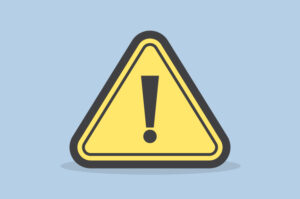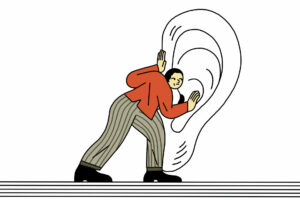Do you struggle with anger? If so, you’re not alone. Anger is one of the most common emotions that people experience, and it can be difficult to deal with it effectively. In this guide, we will provide tips and advice for those who are struggling with anger. We’ll discuss ways to manage your emotions, respond to anger in healthy ways, and create a plan for dealing with difficult situations. If you follow these steps, you’ll be able to handle your anger in a more constructive way!
Contents
What Is Anger?
 We are no strangers to feelings of anger and frustration. When we experience these emotions, it is usually in response to something that has happened that we perceive as unfair, wrong, or threatening. Anger can be a very powerful emotion, and it can lead us to say or do things that we later regret.
We are no strangers to feelings of anger and frustration. When we experience these emotions, it is usually in response to something that has happened that we perceive as unfair, wrong, or threatening. Anger can be a very powerful emotion, and it can lead us to say or do things that we later regret.
While anger is a part of the spectrum of emotions we as humans experience, it is important to be able to manage it in a healthy way. When anger is not managed well, it can lead to problems in our personal and professional lives. It can damage relationships, create conflict, and even lead to violence. In severe cases, it can also become a destructive force in our lives, leading to substance abuse, self-harm, and even suicide.
It is important to note that anger necessarily isn’t a bad thing. In fact, anger can be a very positive emotion when channeled in the right way. It can motivate us to take action and make necessary changes in our lives. The key is to find a balance with anger- to know when it is appropriate to feel angry, and how to express that anger in a healthy way.
How To Deal With Anger?
Now that we’ve talked about what anger is and why it’s important to manage it well, let’s discuss some tips for dealing with anger.
Tips For Self
Managing anger by yourself can be difficult, but it is possible. Here are some tips to help you manage your anger in healthy ways.
Identify triggers
 This is the foremost and most difficult task when it comes to managing anger. You must take the time to really think about what sets you off. Once you have identified your triggers, you can begin to work on ways to avoid or manage them.
This is the foremost and most difficult task when it comes to managing anger. You must take the time to really think about what sets you off. Once you have identified your triggers, you can begin to work on ways to avoid or manage them.
For example, if you know that traffic is a trigger for you, try to leave earlier for your destination so that you can avoid the stressful situation. If you can’t avoid the trigger, try to change your perspective on it. Remind yourself that traffic is something that happens to everyone and that it isn’t personal.
Vent in a healthy way
When one is angry, it is a tendency to become isolated, to bottle everything up. This is not a healthy coping mechanism and will only serve to make the situation worse. It is important to find a outlet for your anger- whether it be talking to a friend, writing in a journal, or going for a run. The important thing is that you find a way to release the pent-up emotion in a constructive way.
Take a step back
When you are in the moment and feeling anger, it can be difficult to see the situation clearly. It is important to take a step back, both physically and emotionally. This will allow you to gain some perspective on the situation and hopefully see it in a less charged light. Once you have calmed down, you can begin to address the situation in a more rational way.
Find distractions
 When you begin to feel anger rising, it is important to find a distraction. This can be anything that takes your mind off of the trigger and allows you to calm down. Some people find that listening to music or taking a walk helps them to diffuse their anger.
When you begin to feel anger rising, it is important to find a distraction. This can be anything that takes your mind off of the trigger and allows you to calm down. Some people find that listening to music or taking a walk helps them to diffuse their anger.
For instance, if you are feeling angry at work, try taking a break to go for a walk outside. This will help you to clear your head and come back to the situation with fresh eyes.
Adapt to relaxation techniques
Relaxation techniques, by the name of it, are there to help you relax. It is important to find a method that works for you and that you can use in the moment when you are feeling anger. Some people find deep breathing exercises helpful, while others prefer progressive muscle relaxation.
The key is to find a method that calms you down and allows you to better deal with the situation at hand. Some of the most popular and effective techniques include:
- Abdominal breathing: This involves slowly inhaling through your nose and exhaling through your mouth. As you breathe in, focus on filling up your abdomen with air. This should cause your stomach to expand. Hold your breath for a moment before slowly exhaling through your mouth.
- Progressive muscle relaxation: This technique involves tensing and relaxing different muscle groups in your body. Start with your toes and work your way up to your head, tensing each muscle group for a few seconds before releasing the tension.
- Yoga: Yoga is a great way to both exercise and relaxes your body. There are many different yoga poses that can help to relieve stress and tension.
- Meditation: Meditation involves focusing your attention on a single object or thought. This can help to clear your mind and allow you to better deal with the situation at hand.
- Mindfulness: Mindfulness is the practice of being present in the moment. This means paying attention to your thoughts and emotions without judging them.
- Visualization: Visualization involves picturing a calm and relaxing place in your mind. This can help to take your focus off of the trigger and allow you to better deal with your anger.
It is important to find a relaxation technique that works for you and that you can use at the moment.
Be mindful of your thoughts
 Anger holds the potential to unleash a destructive force, both externally and internally. It is important to be mindful of your thoughts when you are feeling anger. This means not letting the negative thoughts take over and instead focusing on more positive ones.
Anger holds the potential to unleash a destructive force, both externally and internally. It is important to be mindful of your thoughts when you are feeling anger. This means not letting the negative thoughts take over and instead focusing on more positive ones.
For instance, instead of thinking “I can’t stand this person” try to think “This person is frustrating me, but I can still be kind.” Moreover, it is important to remember that the person who you are angry with is not necessarily a bad person. They may be going through a tough time or be feeling overwhelmed, which can lead to them lashing out.
Create a plan
Being systematic or having a plan can help to diffuse anger. This is because it gives you something to focus on other than the person or situation that is making you angry.
For example, if you are angry with a friend, you can make a plan to talk to them about the situation that is causing the anger. This can help to prevent the anger from boiling over into a fight or argument.
Seek professional help

At the very least, if your anger is causing unmanageable stress in your life, it is important to seek professional help. A therapist can help you to understand the root cause of your anger and give you the tools and techniques to deal with it in a healthy way. Therapy, medication, or a combination of the two may be recommended. There are also a number of alternate and natural therapies that can help.
Anger is a normal emotion, but it can become problematic when it is not managed in a healthy way. If you struggle with anger, there are a number of things that you can do to help.
Tips For Helping Someone Else
When talking about help with anger, we tend to overlook the people who are close to us and how they can help. If you are struggling to deal with someone else’s anger, it can be just as difficult, if not more so. If you have a loved one or friend who is struggling with anger, there are ways that you can support them.
Be a good listener
 When one is angry, they often just want to be heard. It is important to be a good listener when someone is trying to explain their anger. This means not interrupting and instead letting them talk. Doing so ensures that they feel validated and can help to diffuse the anger.
When one is angry, they often just want to be heard. It is important to be a good listener when someone is trying to explain their anger. This means not interrupting and instead letting them talk. Doing so ensures that they feel validated and can help to diffuse the anger.
Try to see things from their perspective
It is also important to try to see things from the other person’s perspective. This can be difficult, but it is important to remember that everyone has a different way of looking at things. By trying to understand where they are coming from, you can help to reduce the anger.
Provide empathy and support
 One thing most people do wrong when someone else is angry is to try to fix the problem. This can often make the situation worse. Instead, provide empathy and support. This means listening and trying to understand what they are feeling. You can also offer encouragement and let them know that you are there for them.
One thing most people do wrong when someone else is angry is to try to fix the problem. This can often make the situation worse. Instead, provide empathy and support. This means listening and trying to understand what they are feeling. You can also offer encouragement and let them know that you are there for them.
Refrain from giving advice
Anger tends to get more agitated when met with advice. This is because the person who is angry often feels like they are not being heard. It is important to refrain from giving advice and instead just listen. Moreover, advice can act like fuel to the fire and make the person angrier. So, it is best to avoid giving any kind of advice and just provide empathy and support.
Some general things one tends to pass off as advice include “just let it go,” “don’t be so angry,” and “stop being mad.”
Encourage healthy coping mechanisms
One way to help someone who is struggling with anger is to help them find an outlet for their anger. This can be in the form of exercise, writing, or anything that allows them to release their anger in a healthy way. It is important to find an outlet that works for them and helps to relieve their anger.
Ask how you can help
 Lastly, assuming that you know how to help someone with their anger is a surefire way to make the situation worse. Instead of assuming, ask them how you can help. This shows that you care and want to help in the best way possible. It also takes the pressure off of you and allows them to take control of the situation.
Lastly, assuming that you know how to help someone with their anger is a surefire way to make the situation worse. Instead of assuming, ask them how you can help. This shows that you care and want to help in the best way possible. It also takes the pressure off of you and allows them to take control of the situation.
If you or someone you know is struggling with anger, there are a number of things that you can do to help. Remember, anger is a normal emotion, but it can become problematic when it is not managed in a healthy way.
Conclusion
Conclusively, there are various ways that can help with anger. It is important to find ways that work for you or the person you know. By learning to control and understand anger, you can improve relationships, communication, and overall well being.
If you or someone you know is looking for psychological help, Therapy Mantra is here for you. We are the leading providers of online therapy and counseling. Our team of highly trained and experienced therapists can provide assistance at the most affordable rates. Contact us today to learn more about our services. You may also visit our website to book an online therapy session or download our free Android or iOS app for more information.


